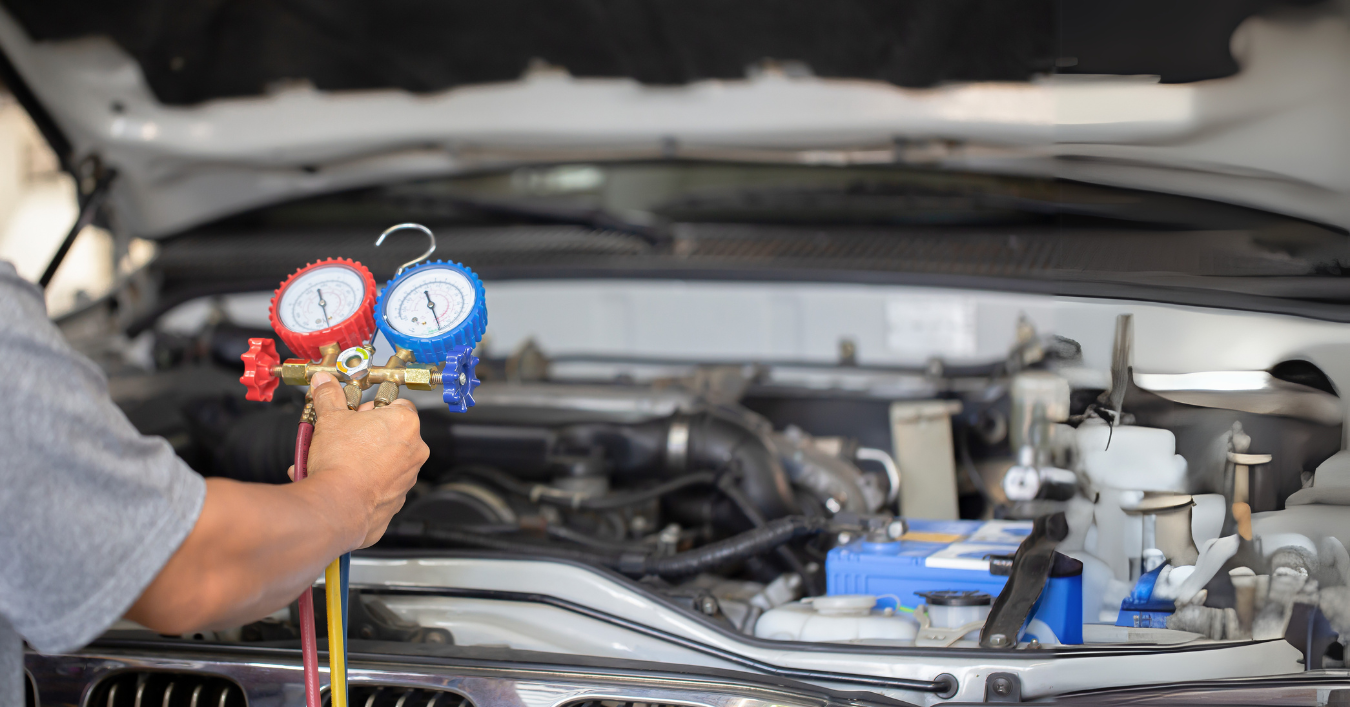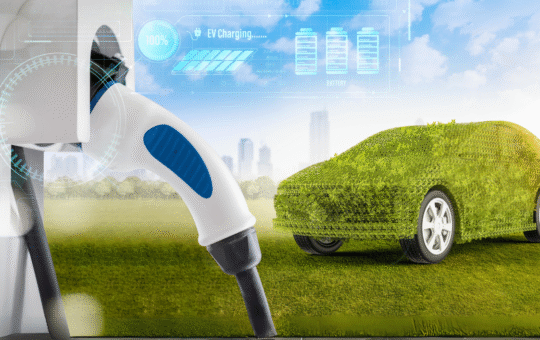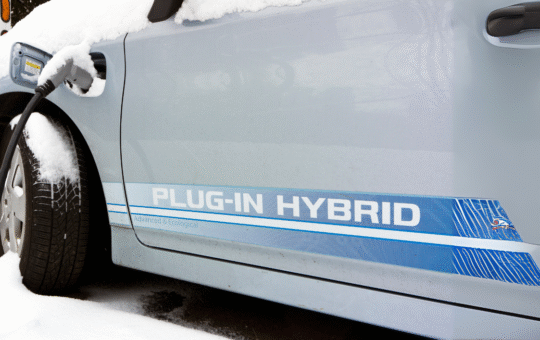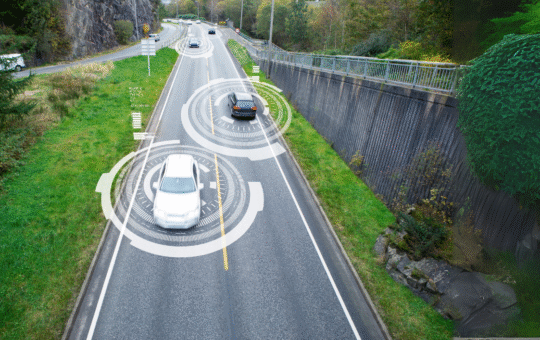
Level 3 Certificate in Automotive HVAC and Environmental Systems
- Develop expertise in HVAC systems, including installation, maintenance, and troubleshooting in automotive environments.
- Understand how environmental systems contribute to vehicle comfort, air quality, and energy efficiency.
- Learn about the technologies behind modern climate control systems in cars, including refrigeration, heating, and filtration.
- Open career pathways in automotive service, repair, and design, with a focus on HVAC and environmental technologies.
- Understand the basic principles and operation of HVAC systems in vehicles.
- Learn about the role of refrigerants, compressors, and evaporators in automotive air conditioning.
- Gain skills in diagnosing, maintaining, and repairing automotive HVAC systems.
- Understand the impact of environmental systems on energy consumption and air quality in vehicles.
- Introduction to Automotive HVAC Systems
- Overview of heating, ventilation, and air conditioning systems in vehicles.
- How HVAC systems maintain interior comfort and climate control.
- Components of Automotive HVAC Systems
- Understanding the key components, including compressors, condensers, evaporators, and refrigerants.
- The role of each component in ensuring efficient operation and temperature regulation.
- Environmental Control and Air Quality Systems
- The importance of air filtration and cabin air quality systems.
- Technologies used for environmental control, such as ionizers, filters, and purifiers.
- Energy Efficiency in Automotive HVAC Systems
- Strategies for improving energy efficiency and reducing the environmental impact of HVAC systems.
- Innovations in environmentally friendly refrigerants and energy-saving technologies.
- Diagnosing and Repairing HVAC System Issues
- Techniques for diagnosing faults in HVAC systems, such as temperature fluctuations and poor air circulation.
- Maintenance and repair practices to ensure optimal performance and extend system lifespan.
- Pursue advanced studies in automotive HVAC systems, such as Level 4 or Level 5 qualifications.
- Work as an automotive HVAC technician, service engineer, or environmental systems specialist.
- Specialize in the design, testing, or maintenance of HVAC and environmental systems within automotive companies or repair shops.
- Industry-Relevant Knowledge: Learn about the latest HVAC and environmental technologies shaping the automotive industry.
- Hands-On Training: Gain practical skills that are crucial for diagnosing and repairing automotive HVAC systems.
- Expert Instruction: Learn from professionals with expertise in HVAC systems and vehicle environmental technologies.
- Globally Recognized Certification: Enhance your employability with a certification that is recognized by automotive companies worldwide.
Study Units
- Introduction to Automotive HVAC Systems
- Overview of heating, ventilation, and air conditioning systems in vehicles.
- How HVAC systems maintain interior comfort and climate control.
- Components of Automotive HVAC Systems
- Understanding the key components, including compressors, condensers, evaporators, and refrigerants.
- The role of each component in ensuring efficient operation and temperature regulation.
- Environmental Control and Air Quality Systems
- The importance of air filtration and cabin air quality systems.
- Technologies used for environmental control, such as ionizers, filters, and purifiers.
- Energy Efficiency in Automotive HVAC Systems
- Strategies for improving energy efficiency and reducing the environmental impact of HVAC systems.
- Innovations in environmentally friendly refrigerants and energy-saving technologies.
- Diagnosing and Repairing HVAC System Issues
- Techniques for diagnosing faults in HVAC systems, such as temperature fluctuations and poor air circulation.
- Maintenance and repair practices to ensure optimal performance and extend system lifespan.
Upon completing this certificate, learners will:
- Understand the basic principles and operation of HVAC systems in vehicles.
- Learn about the role of refrigerants, compressors, and evaporators in automotive air conditioning.
- Gain skills in diagnosing, maintaining, and repairing automotive HVAC systems.
- Understand the impact of environmental systems on energy consumption and air quality in vehicles.
This certificate is designed for individuals seeking to develop expertise in automotive HVAC (Heating, Ventilation, and Air Conditioning) and environmental systems. It is ideal for:
Automotive Technicians and Mechanics
Technicians involved in the repair, maintenance, and service of HVAC systems in vehicles, looking to deepen their knowledge and skills.
HVAC Service Engineers
Professionals working specifically with automotive air conditioning and environmental systems who wish to enhance their expertise in these areas.
Automotive Engineers
Engineers involved in the design, testing, or optimization of climate control and environmental systems within vehicles.
Vehicle Maintenance and Repair Professionals
Individuals working in auto repair shops or dealerships, seeking specialized training in automotive HVAC and environmental technologies.
Sustainability Advocates in Automotive Engineering
Those interested in reducing the environmental impact of automotive HVAC systems through energy-efficient technologies and eco-friendly refrigerants.
Students and Apprentices in Automotive Engineering
Those who want to pursue careers in automotive HVAC systems and environmental technologies.
Our assessment process is designed to ensure every learner achieves the required level of knowledge, skills, and understanding outlined in each course unit.
Purpose of Assessment
Assessment helps measure how well a learner has met the learning outcomes. It ensures consistency, quality, and fairness across all learners.
What Learners Need to Do
Learners must provide clear evidence that shows they have met all the learning outcomes and assessment criteria for each unit. This evidence can take different forms depending on the course and type of learning.
Types of Acceptable Evidence
Assignments, reports, or projects
Worksheets or written tasks
Portfolios of practical work
Answers to oral or written questions
Test or exam papers
Understanding the Structure
Learning outcomes explain what learners should know, understand, or be able to do.
Assessment criteria set the standard learners must meet to achieve each learning outcome.
Assessment Guidelines
All assessment must be authentic, current, and relevant to the unit.
Evidence must match each assessment criterion clearly.
Plagiarism or copied work is not accepted.
All learners must complete assessments within the given timelines.
Where applicable, assessments may be reviewed or verified by internal or external quality assurers.
Full learning outcomes and assessment criteria for each qualification are available from page 8 of the course handbook.
Top Courses
No results found.
Related Courses
Let's Get in touch
Deleting Course Review
Course Access
This course is password protected. To access it please enter your password below:



